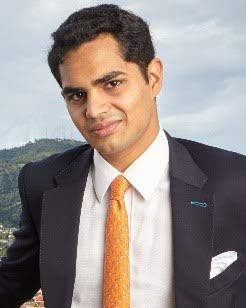And justice for all

KIRAN MATHUR MOHAMMED
kmmpub@gmail.com
Justice here is deliberate, but slow. Cases wind their way through labyrinthine warrens. The solemnities of post-colonial justice celebrate grand rituals of bureaucracy and fell small forests. Delays and inefficiency extract blood, time and treasure.
The 2018 Doing Business Index ranks TT 174th out of 190 countries in contract enforcement. They define this as the time and cost to resolve a commercial dispute and the quality of judicial processes.
Many companies naturally think twice about investing, hiring, or entering into long-term supply contracts or business agreements, betting that any dispute could consume years and cost hundreds of thousands.
Five years ago there were two new cases for every one disposed of. For 2016-2017, there were more than three new cases filed for each one disposed. Three hundred and fifty-seven criminal matters have been pending for between ten and 15 years, with an astonishing 352 matters pending for more than 15 years.
For the most vulnerable, particularly women, it is not just costly. It is dangerous. Family Court protection orders have a clearance rate of just 54 per cent.
That said, in their remarkably progressive annual report for 2017/18, the judiciary has frankly admitted the problems and announced the results of several new pilot projects.
Broadly: there are three reforms that can radically overhaul efficiency.
The first is specialisation. Splitting up courts allows different approaches for different types of cases.
Take traffic offences. The average annual number of new cases in magistrates’ courts is 136,054. Of this, more than half (75,982) are traffic-related. This December’s proclamation of the Criminal Division and Traffic Division Courts Act will hugely reduce this burden by allowing traffic offenses to be received by mail and settled without going into a court.
The judiciary has piloted a dedicated drug treatment court linked to rehabilitation. This has been successful. The costs of imprisoning drug addicts are much greater than those of treatment.
In the Port of Spain Magistrates' Court – which has a dedicated petty civil court – the clearance rate is 96.5 per cent. In Sangre Grande – which does not – it is eight per cent.
We should support the rollout of dedicated petty civil, traffic and drug treatment courts to all districts. They will pay for themselves.
The second reform is technology. The judiciary has already launched CourtPay and CourtMail. The former allows people to make court payments online. The latter provides a secure communication platform between attorneys and judicial officials. Both will save hundreds of thousands of man-hours.
Tight resources (for new courthouses for example) are forcing adoption of new technology. The courts are soon to introduce a video-conferencing link with the prisons. This reduces the need for physical court spaces, and costly prisoner transfers.
Going further: online platforms like Cybersettle can allow parties to confidentially match offers and demands to negotiate settlements online. The settlement negotiation process is often drawn out and relatively few cases are settled.
Technology can help to smooth the process. As law technology expert Robert Ambrogi points out, eBay manages to deal with 60 million disputes a year and resolves more than 90 per cent of them.
Data entry and recording, however, are still highly manual. It is good that the courts are introducing software to convert voice to text, even if there are problems to be ironed out (the report cites "the rustling of mint wrappers"). But voice-recognition software is improving daily. In the meantime, simply issuing staff with laptops for real-time transcribing can help.
The truth is that the technology will only be so good as the underlying systems. This leads to the third reform: case management. The judiciary is taking the right steps and has invested in a case management system. This will capture data and help judges manage caseloads.
This should be supported by structural changes. Australia (which incidentally ranks fifth for contract enforcement) has made case management core to its system. Judges there can refer cases or disputes within cases to mediation (with or without the parties’ consent) or send them for arbitration. In most cases this reduces pre-trial work and reduces disputes.
Case management works. The successful local pilot of the "fast-track court" dispensed with 12 matters in six weeks.
Altogether, these are major changes and need dedicated court managers to execute them and train staff, even if it costs money to hire them.
Investments in contract rights pay for themselves. Making them stronger will directly lead to growth. More importantly: too many in our society feel angry and shut out of the system. Innovation can give them justice.
Kiran Mathur Mohammed is a social entrepreneur, economist and businessman. He is a former banker, and a graduate of the University of Edinburgh.


Comments
"And justice for all"